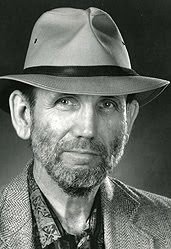
As someone in the Patent-Producing and brainstorming biz, I've always been intrigued by processes which purport to amplify the production of big ideas, e.g. the Kage Roi brainstorming room, which unfortunately seems to have gone to ground. This morning I re-stumbled across a New Yorker article on Intellectual Ventures, a patent mill that has recently been in the news for some smartphone-related lawsuits and came across this quote:
You know how musicians will say, ‘My teacher was So-and-So, and his teacher was So-and-So,’ right back to Beethoven?”
Actually, I have never heard a musician say this, and assuming he may have meant "composer," I'm not sure most composers can actually make the claim of "right back to Beethoven" anyway, although maybe a lot of pianists, since Beethoven taught Czerny who taught Liszt who then taught everybody. But, curiosity having been raised, I decided to follow my teachers back a few generations where I could, limited this morning to the resources of the Internet, having lost personal access to Grove's in the divorce, and by means of so doing, arrived at the genealogy below, where the dots signify a depletion of precedence in my simple search. Some more famous nodes could be seen if I had included cousin or sibling relationships, as Horatio Parker is best know as a teacher of Charles Ives, and Dukas and Debussy were classmates.
richard grayson
henri pousseur •
robert arthur gross •
andrew imbrie
nadia boulanger
gabriel fauré
camille saint-saëns
fromental halévy
luigi cherubini •
charles-marie widor
françois-joseph fétis
françois-adrien boieldieu •
roger sessions
horatio parker
george whitefield chadwick
stephen a. emery •
josef rheinberger •
ernest bloch
iwan knorr •
john chowning
nadia boulanger (above)
gerard grisey
olivier messiaen
maurice emmanuel
léo delibes
cesar franck
anton reicha
josef reicha •
antonio salieri
florian leopold gassmann
johann woborschil •
johann georg albrechtsberger •
marcel dupré
louis diémer
ambrose thomas
jean-françois le sueur •
charles-marie widor (above)
paul dukas
théodore dubois
louis fanart •
ernest guiraud
fromental halévy (above)
györgy ligeti
pál kadosa
zoltán székely •
zoltán kodály
charles-marie widor (above)
ferenc farkas
leo weiner
hans von koessler •
albert siklós •
ottorino respighi
giuseppe martucci
paolo serrao •
nikolai rimsky-korsakov
mily balakirev
mikhail glinka
charles meyer •
zoltán kodály (above)
sándor veress •
karlheinz stockhausen
olivier messiaen (above)
iannis xenakis
olivier messiaen (above)








